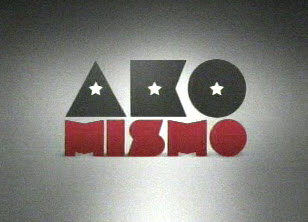When we were told that part of our class requirements would be a mandatory blog post for every week, I foolishly thought that it would be easy. After all, I had the internet connection, and well, blogging is just the outpouring of your thoughts through an online channel, right? Oh, the bliss of ignorance. Apparently, I was so very naive (And maybe I still am).
Level 1: I have already tried blogging in the past, for personal purposes. I was fascinated by the way bloggers are so unique in expressing themselves, and I wanted that, too. However, it was not as easy as I thought it would be. For a personal blog, I had a difficult time in determining what is an appropriate topic to blog, and the extent that I would blog about my life. I am a very talkative person, and sometimes I do not filter what I share to other people, but when your thoughts are going to be saved online for pretty much everyone to see, that kind of brings out personal barriers.
And what are these personal barriers? First, there are the trivial ones, like I’m too lazy, or I’m so tired after an event that I don’t get to blog about it right after, and when I do get the time to blog, I’ve already missed out on what I want to say, or I’ve already forgotten some details, or, again, I just become lazy. Secondly, I’m not that comfortable with revealing too much about myself. On one hand, I can be quite shy (no objections, please), and on the other, there are things that I do not want to reveal because of certain pressures. In fact, that can be my third reason. Social pressures. Sometimes, I can imagine myself as going around in different spheres, different circles, of people. I debate, I love to watch anime, Japanese stuff, I am Baptist, and a lot more. And there are things that are not accepted by some circles that are accepted by others. For example, it’s very annoying to have to turn defensive when talking about cosplaying to a classmate. I mean, I like it, or at least I get it, so what’s the problem? That is why sometimes I feel there are things I shouldn’t be saying or revealing to people from other circles. It’s like creating lots of Leahs – Leah the debater, Leah the OrCom student, Leah the otaku, and so on. I know blogging is about just being yourself, but there is still the fear of rejection, and the fear of not being accepted, the fear of not being good enough.
Level 2: If I already have barriers when it comes to personal blogging, what more in terms of more professional blogging? Blogging for class, for example? In this respect, however, the worry about getting too personal is quite different. Here, the challenge is to be able to work the more serious topics while giving it a personal touch. And since it should be done on a regular basis, you are somewhat forced to do it. I’m being generous there. You can’t just stop blogging if you don’t feel like it, because there will be repercussions. So my personal barrier no. 1 which is laziness is quite the problem here. Also, writing in itself is a very difficult task, as I have learned from a professor. I am familiar with this fact. Sometimes, a blank page (or screen) can be very daunting. There are also pressures. The pressure of being witty, of standing out, of living up to expectations, can be difficult. Just being in my degree program already brings up a lot of expectations. And of course, these expectations should be lived up to, and even exceeded. But sometimes, thinking about these expectations are a hindrance rather than a help. As another professor said, and I do not quote, because I forget the exact words, the more you try to impress, the more you fail. I think it was somewhere along those lines. At least, that was how I understood it. Okay, that’s enough disclaimers.
Level 3: So, at the end of the day, I guess it all boils down to: CONFIDENCE. Who would’ve thought that I have confidence issues? But I am just human, and I do have human issues. And maybe I will find a way in order to work through this online experience, without losing myself, and finding the confidence (and the wit) to weave my personality into topics that would seem mundane, but are actually exciting and important. This is going to be fun. I think. Right?



